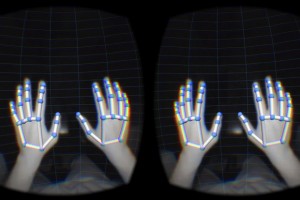1 min read
Oculus Buys Gesture-Control Company Pebbles Interfaces

December 23, 2024
Copyright 2023, IT Voice Media Pvt. Ltd.
All Rights Reserved

 Oculus, has inked a deal to buy gesture-control and computer-vision company Pebbles Interfaces.
Oculus, has inked a deal to buy gesture-control and computer-vision company Pebbles Interfaces.